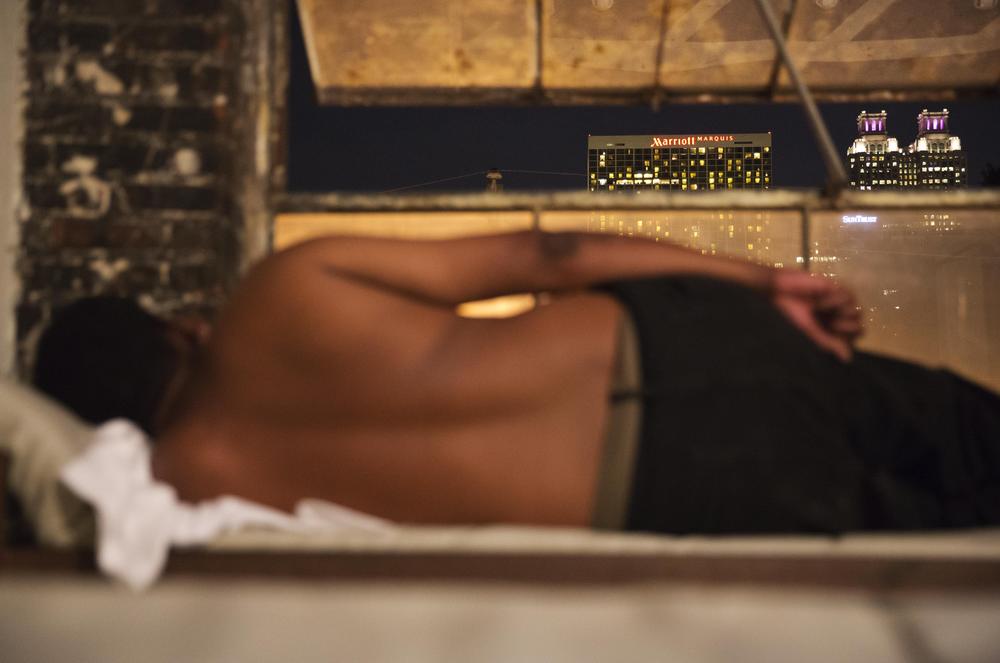Section Branding
Header Content
Atlanta's Homeless Face Uncertain Future As Peachtree-Pine Closes
Primary Content
On Monday, one of the largest homeless shelters in Georgia will begin the months-long process of shutting its doors.
On its busiest nights, Atlanta’s Peachtree-Pine shelter would house hundreds of men, women, and children. About 300 or so people live there now, and starting next week they’ll be looking to find new places to stay.
“It’s a bittersweet feeling, of course,” said Carl Hartrampf, Executive Director of the Metro Atlanta Task Force For The Homeless.
The nonprofit has run the shelter on one of Atlanta’s most prominent street corners for more than two decades, and its time there has been tumultuous.
After epic legal battles against the city, tuberculosis, bed bugs and other hazards, the task force settled out of court and sold its enormous industrial building to Central Atlanta Progress, a downtown business group.
CAP takes over the facility on Monday, at which time the United Way’s Regional Commission On Homelessness will begin the process of finding the shelter’s residents permanent housing.
Protip Biswas works with the commission. He says the goal of the transition is simple.
“Could we offer everyone a better option, and hopefully convince most of them to take that offer? It’s how many of these men, women, and children move on to a better solution,” he said.
Biswas is hopeful the process will take no longer than 60 days.
But it’ll be no easy task. At full capacity, Peachtree-Pine could house 1,000 people a night and other shelters in Atlanta already struggle to meet demand.
Earlier this year, Atlanta Mayor Kasim Reed announced a $50 million plan to place 500 chronically homeless individuals and 300 homeless families in permanent housing.
But the city hasn't acquired this housing yet, nor chosen property owners willing to operate units they develop or renovate, a spokesperson for the city said.
“We’re all homeless out here, we need a place to stay, you know? There ain’t too many shelters around here in Atlanta,” said Rodney Jones, who’s been staying at Peachtree-Pine since July.
Many of the shelter’s residents spend their days on the sidewalks in the heart of Midtown. It’s some of the most valuable real estate in the South, close to Atlanta’s tallest skyscraper and the iconic Fox Theatre.
“I think [the closure’s] going to be very traumatic, because so many people are used to going to [the] task force for help,” said Tracie Phelps.
On a recent afternoon, she sat on a bench in a park right around the corner from Peachtree-Pine.
Phelps spent some time there before moving to another shelter across town. She says the conditions weren’t great, but it was the first shelter recommended to her when she found herself with no place to stay.
Many of those who use Peachtree-Pine say that’s why they came to the shelter in the first place: it’s well-known and easy to get in.
Hartrampf, who oversees the group that runs the shelter, says he doesn’t see enough other “low barrier” shelters in the city to pick up the slack.
He says the United Way’s timeline to find Peachtree-Pines residents stable housing is too optimistic.
“I think it’s going to take them longer than [they think] to place everybody here,” he said.



